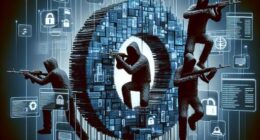FasTrak Text Message Payment Requests Identified as Scams by California’s Attorney General
In an era where digital scams are increasingly rampant, a new fraudulent scheme has emerged, targeting users of California’s toll roads. These scams involve text messages that falsely claim to be from FasTrak, warning recipients that they owe money for toll road usage.
The scam texts have been convincing enough to catch people off guard, especially those who frequently use toll roads and might indeed have a FasTrak transponder. These messages pretend to be official communications, informing recipients of “overdue toll charges” and urging them to click on a provided link to avoid further late fees. However, the California Attorney General Rob Bonta has clarified that these messages are not from FasTrak but from cybercriminals aiming to commit fraud.
According to a consumer alert issued by Bonta’s office, there has been a notable increase in these text-based scams. The scammers’ aim is to lead unsuspecting individuals to phishing sites through the embedded links in the texts. Once on these sites, personal information can be extracted from victims, potentially leading to cases of identity theft.
The Rising Threat of Cybercrime
Cybercrime has become a major concern, with consumers losing upwards of $12.5 billion in 2022 alone, reflecting a 22% increase in the United States. Over the past five years, the FBI’s Internet Crime Complaint Center has documented over 3.8 million complaints with financial losses surpassing $37 billion. This highlights the critical importance of vigilance and awareness among internet users.
Important Steps to Take
Rob Bonta advises anyone who receives these suspicious texts to not click on any links provided. Instead, take a screenshot of the message, then delete it and report it to your provider as either “junk” or “spam.” Additionally, it’s crucial to report the scam to relevant authorities to help combat these fraudulent schemes. These authorities include the FBI, the Federal Trade Commission, and the state Attorney General’s office, where you can detail the scam, including the originating phone number and the website URL mentioned in the text.
To verify toll charges, always use the official FasTrak website and not the links sent in unsolicited messages. Different regions of California have their specific websites for toll services, ensuring secure and legitimate transactions.
Victims of these scams are encouraged to alert their friends and family to prevent further spread. Awareness is a powerful tool against cybercriminals, and sharing information on these scams can protect others from falling victim.
It should be noted that receiving incorrect toll charges via mail from FasTrak, while rare, can occur due to system errors. In such cases, contact FasTrak directly to dispute the charge. The agency has systems in place, including traffic cameras, to verify vehicle presence on toll roads and ensure charges are accurately assigned.
In conclusion, while digital technologies offer convenience and efficiency, they also pose new risks. The emergence of text message scams claiming to be from FasTrak serves as a reminder of the ever-present threat of cybercrime. By staying informed and exercising caution, consumers can protect themselves from becoming the next victims of these deceptive practices.










